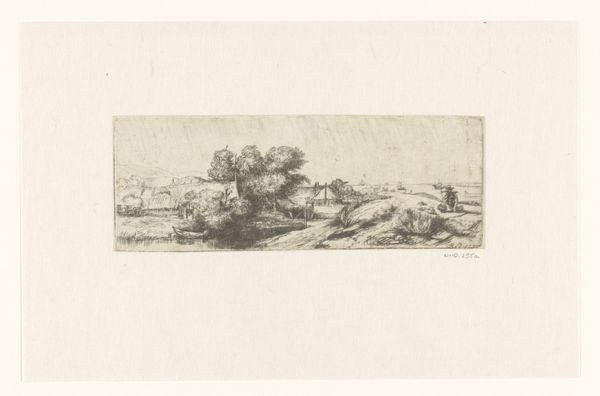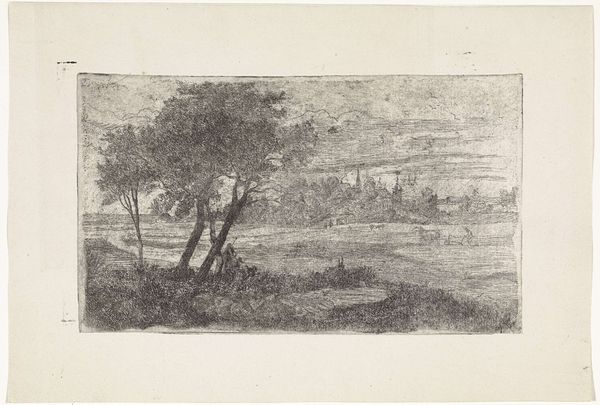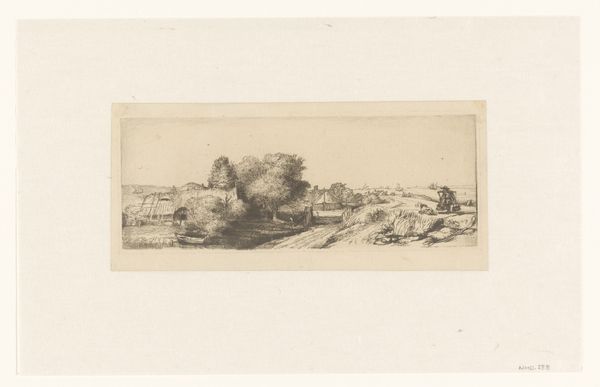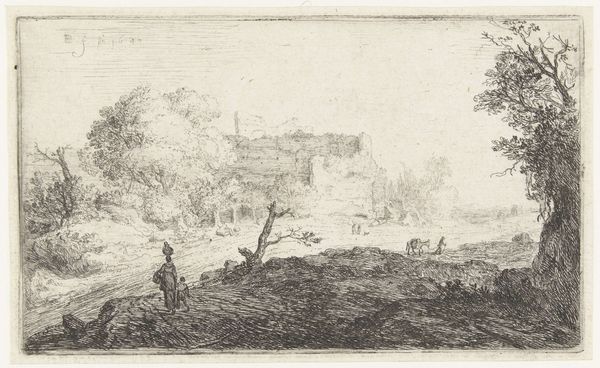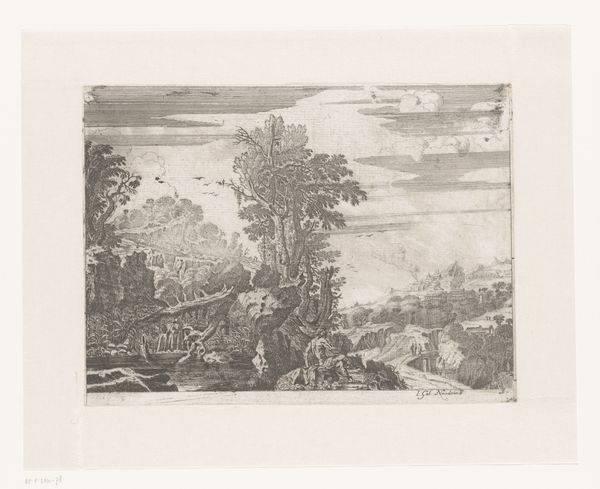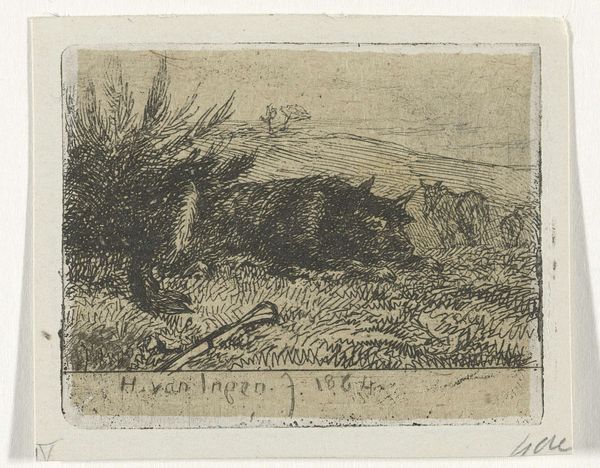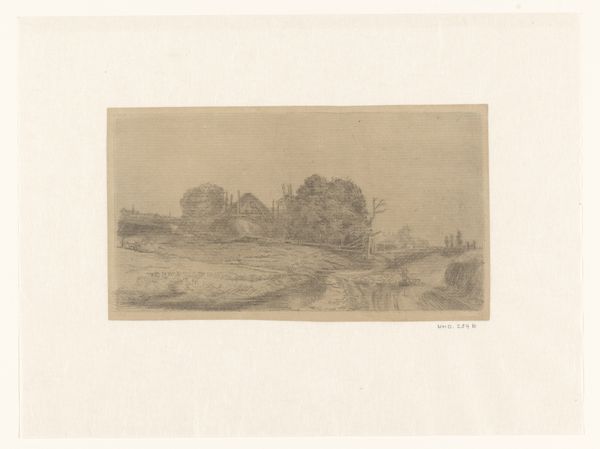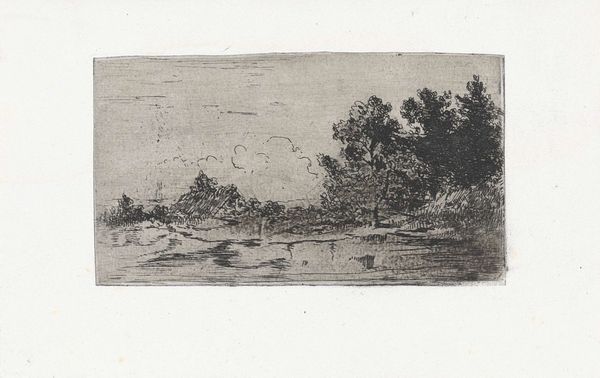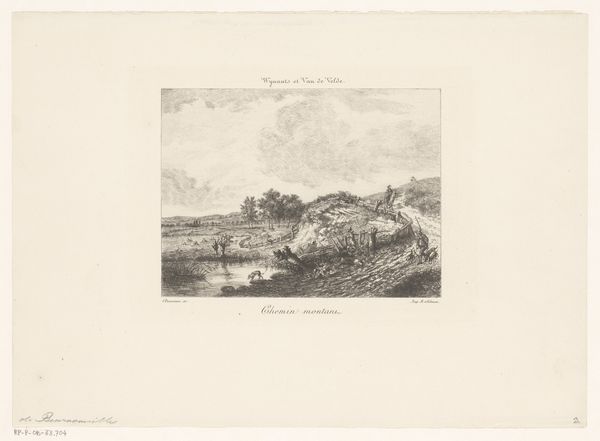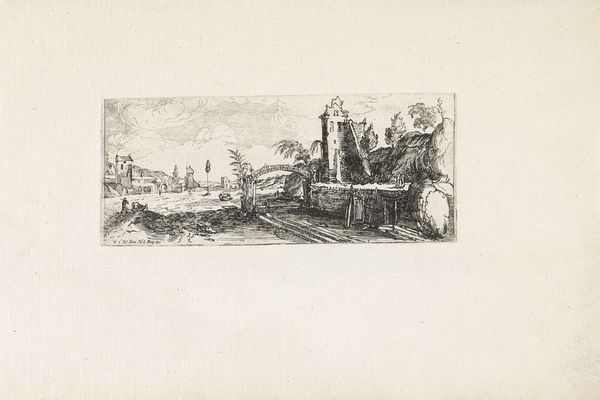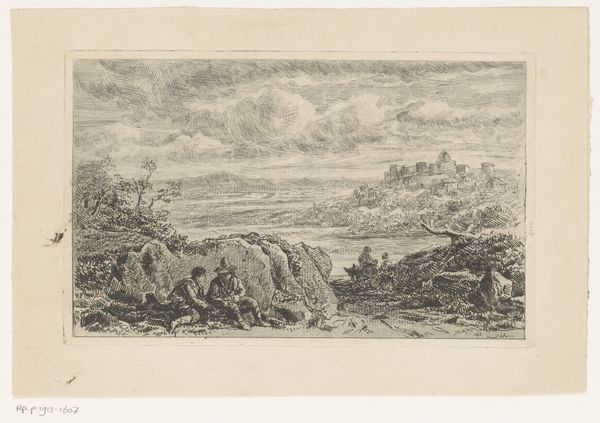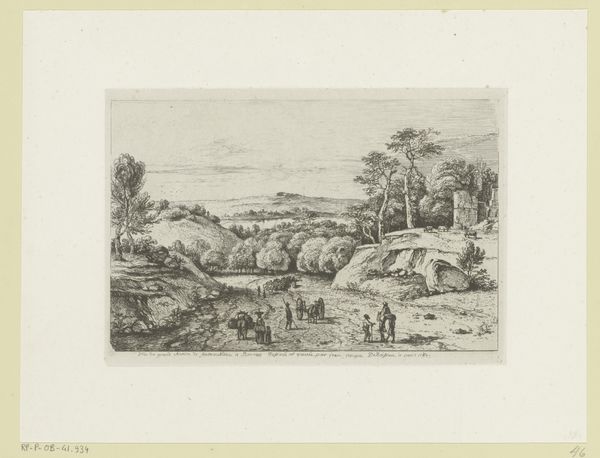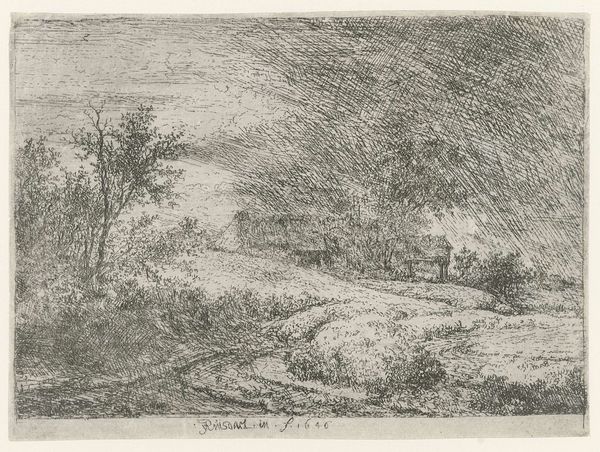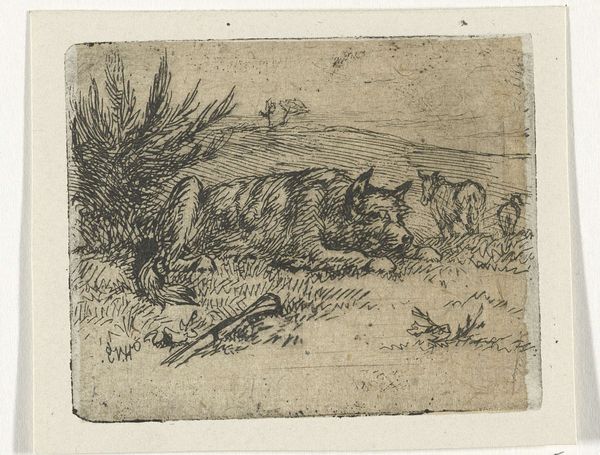
Waterrijk landschap met figuur op een houten bruggetje 1830 - 1899
0:00
0:00
alexanderschaepkens
Rijksmuseum
Dimensions: height 114 mm, width 148 mm
Copyright: Rijks Museum: Open Domain
This is a landscape with a figure on a wooden bridge by Alexander Schaepkens, made using etching. The etcher prepares a metal plate, often copper or zinc, with a waxy ground. The artist then scratches into this ground with a pointed tool, exposing the metal. The plate is then submerged in acid, which bites into the exposed lines, creating grooves. The depth of these grooves determines the darkness of the lines in the print. The plate is then inked, and wiped clean, leaving ink only in the etched lines. Damp paper is then pressed against the plate, transferring the ink and creating the final print. What’s interesting is how the etching technique lends itself to capturing the nuances of light and shadow in this serene waterscape. The delicate lines create a sense of depth, and the varying tones evoke a tranquil atmosphere. Considering the labor and skill required, this etching stands as a testament to the artist's craft, blurring the lines between fine art and the artistry of printmaking.
Comments
No comments
Be the first to comment and join the conversation on the ultimate creative platform.
